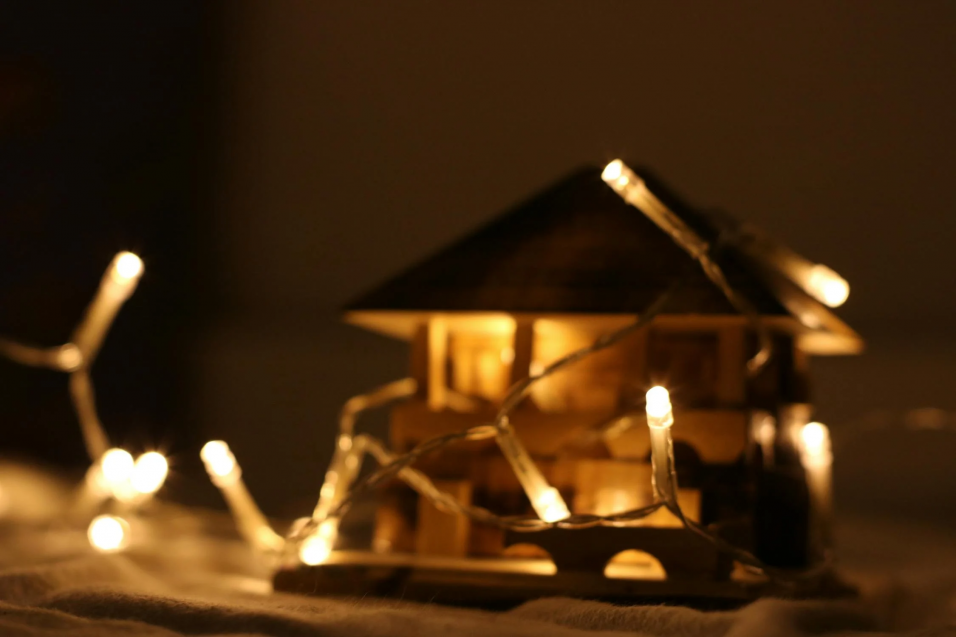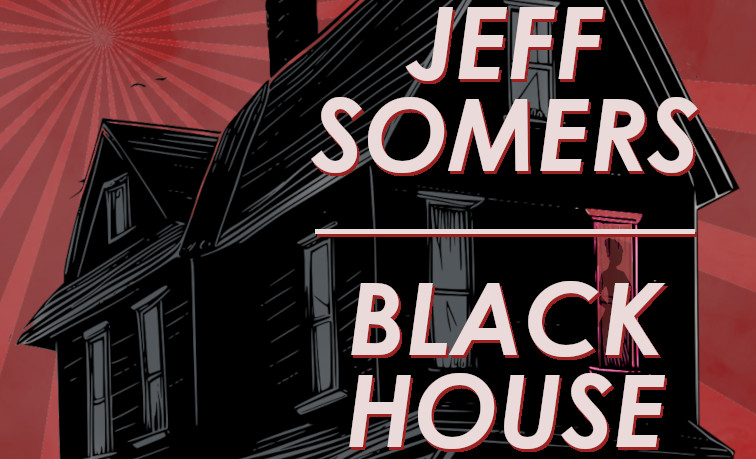As has become hallowed tradition, I’ll be posting my novel BLACK HOUSE on this blog one chapter per week in 2024.
39. The Xeric Room
“Come on!” he heard Dee shout, distant. “There’s a way back!”
Marks stepped into the hallway, gathering up rope as he walked. As he turned the sharp corner that all the connecting hallways between the places in the Black House had, he could feel heat building, like he was walking towards a huge furnace. When he turned the corner and stepped through the doorway, blistering heat almost knocked him down as he stepped into an impossible, wide-open space.
Sand, unbelievably, crunched under his feet. It was too large to be a room. It was a … place? An environment? A world? None of the terms seemed to fit. Squinting and holding his hand over his eyes to shield them from the bright light that was almost exactly like sunlight, he could actually see a horizon in the distance. In each direction all he could see was blue sky and sand. Despite the glare of the light, there was no sun in the sky.
There was some sort of landmark: A cactus stood proudly not too far away. He was already sweating freely, and thinking about water again. He turned and found a door frame freestanding in the middle of the air, the door opened outward, a goat carved onto it. He leaned around and peered behind it, finding only sand, no evidence of the hallway that led to a garden just a few subjective feet away.
Dee was standing by the cactus, the rope still knotted tightly around her waist. She grinned at Marks and looked around. He walked over to her; the sand was loose and fine and difficult to find purchase in, and he was breathing hard by the time he reached her.
“Look,” she said, pointing at the ground.
Drawn in the sand around the plant at the four corners of the compass were four symbols; the stick used to scratch them was discarded nearby. The symbols were a fish, a crown, a cross, and a key, each with an arrow pointing away into the distance—the fish pointed back at the freestanding, impossible door that led to the garden.
“Hmmph,” Marks said. The thin, dry air seemed to snatch his voice away with the constant, steady hot breeze.
A sound from above made him look up; small dark shapes were circling around them, high in the air.
“Vultures,” he said softly. “Come to see how long we can stand the baking.”
“Shit,” Dee said in a low voice, following his gaze.
“No footprints,” he added.
She looked down and around. “Shit,” she repeated.
“My guess,” he said after a moment, “is that we start walking, we die in here. Or are lost forever. Same thing, really.”
She nodded. “Moth, then.”
“Moth.”
Back in the garden, Marks looped the rope around his elbow and hand and then shoved it into the backpack. He pulled out the notebook and made some notes in it, bringing his messy map up to date with the new information, including some cryptic notes about the drawings in the sand he hoped would make sense someday. He wondered if everything there connected somehow to him or Dee, if only they thought about it. The stuff everywhere, the dictionaries, the carvings and drawings. He looked around, wondering if every single detail had been plucked from their brains, their memories.
He was thirsty. As he stuffed the notebook back into the backpack, he knew that if he was wrong about the song being the key, if he was wrong about the insane logic of the place, they would both die in here, absorbed by it. He could hear and feel the collapse of the place, the grinding up of rooms behind them as if by enormous teeth, and corrected himself: It sounded very much as if they would die some sort of horrible, painful death if they stayed there. There was little choice but to keep moving. He had the idea that as long as they were on the right path, as long as they were heading towards the exit, the path couldn’t collapse. Couldn’t be ground up to be remade into the next version.
He didn’t have any proof, or reason why this had to be. It was all faith. He believed he understood the Black House, its rules, its purpose. If he didn’t, it didn’t matter.
“What’s the next chord again?” Dee asked. “After the minor one, I mean.”
“F,” he said, slinging the backpack onto his shoulder and standing up.
She nodded. “Shit, Marks, there was a fish in that desert!”
Marks nodded. “True. But it pointed back here. I think it was making sure we went in the right direction. And there was a Fly in the concert hall.”
“Yeah, if this place plays by rules, which we’ve seen, like, zero evidence for,” she said. When she looked back at him, he thought she looked tired and dirty. She pushed a strand of hair out of her eyes. “We gotta be close,” she said, nodding firmly. “We’re almost through.”
He nodded back without enthusiasm, his mouth dry and thick, his stomach rumbling. “Ready?”
“Ready eddy.”
He smiled faintly, and they walked over to the door with the moth carved on it. The old door was soft and rotten, the iron hinges rusted, and it was difficult to open. He managed to get it open far enough for them to slip through—her, easily, him with a panic moment when he appeared to be wedged. Then the usual twisting hallway, the usual second door. He pushed it open and found darkness; the noise of collapse, the tearing, grinding noise, was much louder, as if it was right there in the room.
He hesitated a moment. He wondered if that was what the grinding noise left behind: Darkness, nothingness, void. Thinking there was no other choice, he stepped through, and fell a short distance, landing awkwardly. A moment later he heard Dee land next to him with more grace, and suddenly there was light, soft and yellow.
There was still the slightest scent of peppermint perfume in the air.
He looked around. “Fuck me.”
It was a simple room with plaster walls that had been painted a garish shade of red. The floor was worn and scratched hardwood. There was no furniture.
Except for the birdcage in one corner, the large black bird staring at them, eyes shining.
“Mawk, good to see you awk!”
Dee sat down on the floor. “Oh my god,” she said dully. “We got fucked.”
“Mawk, set me free, set me free, awk!”
Marks felt tears in the back of his throat. He was exhausted. So tired, and here they were in a room they’d already been to, meaning he was either totally wrong about the path out, or they’d simply made a wrong turn, chosen the wrong door. He remembered the door that had led them here before; it had a bird carving on it—a Myna Bird, he now realized. It had been literal. He didn’t know what it meant. He didn’t care any more. Maybe they should have stayed in the desert. Maybe that had been the trick, making them afraid to wander the searing sands, scaring them off the correct trail.
“What do we do now?”
Marks closed his eyes. The doors were tiger, hippo, and ibex. The way back to the garden had vanished. They’d gone through the hippo door and into the Hall of Mirrors. They’d been through the Ibex door from another route and been in the surgery. That left the tiger door, but he stared at it glumly. He had no faith that it meant anything. It was just another door. And they were never getting out.
The noise was getting louder, slowly approaching. He wondered if there was even a maze left to backtrack through. He thought, with the notebook, that he could retrace their steps, but he wondered if the rooms they’d been in were still there, or if most of the maze had been destroyed behind them. He wondered if it even mattered, if he’d even been correct in thinking there were patterns to perceive.
“Mawk! Set me free! Set me free! Way out!”
“Shut up, bird,” Dee whispered.
Marks stood up and walked over to the cage. It looked like someone had recently changed out the newspapers lining the bottom and the water; it seemed clearer and less spoiled than before. He remembered Agnes saying something about minions; perhaps that hadn’t been a lie. Perhaps there were hidden beings, re-shaping the place, cleaning it, maintaining it—tearing it apart.
He looked up, listening to the noise, picturing giants destroying everything, re-building, re-arranging.
“Awk!” the bird screeched. “Way out! Set me free!”
Marks bent down again and looked at the bird. It stared back at him steadily, shifting its weight subtly on the wooden dowl it perched on.
“Set you free,” he said quietly.
The bird ducked its head, as if nodding assent.
“I guess we go Tiger?” Dee said, standing up. She sounded defeated, too. Tired. She sounded like she was making the suggestion for no particular reason. As if she had no expectation, but had decided she couldn’t just sit there and do nothing. “Nothing else to do, right? At least it’s a new room. Maybe we’ll get a hint as to where we went wrong.”
Marks continued to stare at the bird. “Did we?”
Dee snorted. “We doubled back on ourselves. You said M for minor but we got M for myna and we’re back in this stupid, useless room.”
Mark nodded. “Maybe we set the bird free.”
Dee stepped over to him and leaned in to peer at the bird as well. It looked at her, than back at Marks. “You serious?” she asked.
He shrugged. “Why not? It keeps saying it knows the way out. It wants to be set free. The next chord would be an F. Maybe it’s F for free.”
Dee shook her head. “That means we could of gotten out way back when we were here with … with her. That doesn’t make sense.”
“Sure it does. It’s a trick. It’s a game. The place messing with us.” He looked at her. “Or it needs to happen in a specific order, like opening a safe—a combination. What’s to lose? We set it free. See what happens.” He looked at the bird again. “Doesn’t it look smart? Like it understands?”
The bird ducked its head.
Dee frowned. “That did almost look like a nod.”
The bird ducked again. She cocked her head. “We set you free, you show us the way, huh, Little Man?”
The bird ducked. “Awk! Way out!”
Marks nodded. He reached out and took hold of the tiny door to the cage, a door that seemed far too small for the bird—too small for it to have even gotten into the cage in the first place. He took a breath and looked at the Bird; it was staring at him intently, its wings moving in subtle rolling motions, as if it was preparing itself for exertion.
He pulled the door open.
For a moment, the bird just stared at the opening. Marks and Dee held their breath. The shattering noise went on, crunching and groaning.
And then the bird moved. It fluttered its wings. And started to grow. It swelled up, quickly filling the cage and then bursting out of it, sending Marks and Dee scampering to escape an explosion of shrapnel. The bird took flight, making one circuit of the room as it grew and grew. When it returned to hover over them, flapping its wings, it was as large as Dee. At its new size, it was much more frightening. Even worse was the intelligent way it peered down at them.
“Well, fuck me,” Marks whispered in the sudden, ominous silence.
“Fuck us both,” Dee added.
The bird ducked its head. Then it reared up and pecked at Marks.
EPUB | MOBI | PDF



